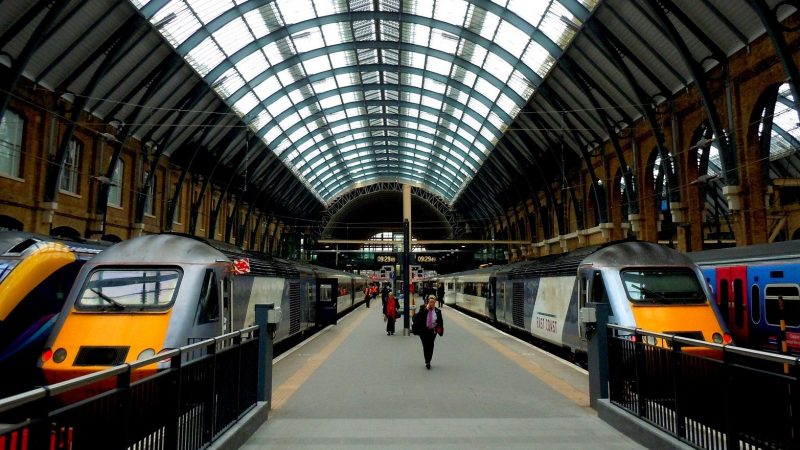Amid economic hardship, rail fares are going up yet again - while privatised firms continue to rake it in.

Average fares will soon rise to 42% more than they were when the Tories came to power in 2010, according to new analysis.
Campaigners have reacted with outrage to the announcement that regulated fares are set to rise again by 1.6% in January, despite the economic hardships many are facing during the pandemic. The move will apply to all regulated fares in England and Wales, as well as most in Scotland.
Labour has compared the costs on over 180 train routes between when the Conservatives came to power and the projected new prices that will be implemented from January 2021.
Average fares have risen two and half times faster than wages, with the average commuter now paying £3,113 for their season ticket – £919 or 42% more than in 2010.
The highest increase is projected to be on a Virgin Trains season ticket between Birmingham and London Euston, which will have risen by £3,355 since 2010 and now costs £11,383.
In Boris Johnson’ constituency the cost of an annual season ticket from West Drayton to London Paddington has risen by £617 since 2010.
The passenger watchdog Transport Focus and unions have called on the UK government to abolish the policy of annual fare rises at a time when passenger numbers on the railway have plummeted because of the coronavirus, the Guardian reports.
Jim McMahon MP, Labour’s Shadow Transport Secretary said: “Decisions taken by Government Ministers are making rail travel unaffordable and discouraging people back on to the network which will be vital for getting the rail sector on a stable footing.
“The truth is that our fragmented, privatised railway drives up costs and leaves passengers paying more for less.
“Labour has long argued that public ownership of the rail network will provide better value for the taxpayer and for passengers, the Government must stop paying the profit of the private rail companies and bring the network in-house.”
The rail industry has been handed billions in bailouts during the Covid pandemic, compensating for a collapse in users. Private companies have kept running similar levels of services with massively reduced demand – while the state pays them the same rate.
The emergency measures mean the government has taken on all the risk, losses and costs – while the rail companies continue to get a guaranteed income to keep the trains running.
The bailouts have led the rail sector to be officially reclassified as in the ‘public sector’ by the Office for National Statistics. But We Own It say this is merely an accounting classification reflecting the increased involvement government involvement, rather than signifying meaningful public ownership.
Ellen Lees campaigns officer at We Own It said: “Right now, private rail companies are being handed bucket loads of taxpayers’ cash to prop up the failing model of rail privatisation. In the good times, private companies let the money roll in. In the bad times, the government pays them to keep the sham of privatisation ticking over.
“So it beggars belief that rail fares are set to shoot up once again this year. The public are already forking out to protect private companies’ bottom lines through subsidies – now they’re being asked to pay more to use the railways.
“The government needs to face reality. Rail privatisation is a dead system that has no future. The only solution to our broken railways is to bring them into public ownership – where they belong.”
The Liberal Democrats have stopped short of calling for nationalisation, instead saying any increase in fares would be “a slap in the face” for consumers. The party is calling for a fares freeze.
The party wants to see additional funding to increase capacity and build a network “fit for the future” – including cutting emissions and reducing air pollution.
The news comes as Transport for London reviews its fare freeze, following a strings-attached bailout from the government.
Labour’s London Assembly Transport Spokesperson, Alison Moore AM, added:
“The Government need to be upfront with commuters about why they are putting up rail fares. This will especially hit those who have no choice but to travel for work, many of whom are on low incomes, and many of whom provide the vital services we’ve relied on so heavily during this pandemic.
“This autumn the Government will be back in financial negotiations with Transport for London (TfL) and what we can’t see is them forcing through fare rises that result in cuts to services – Londoners would not thank the Government for that.”
Josiah Mortimer is co-editor of Left Foot Forward.
Left Foot Forward doesn't have the backing of big business or billionaires. We rely on the kind and generous support of ordinary people like you.
You can support hard-hitting journalism that holds the right to account, provides a forum for debate among progressives, and covers the stories the rest of the media ignore. Donate today.



